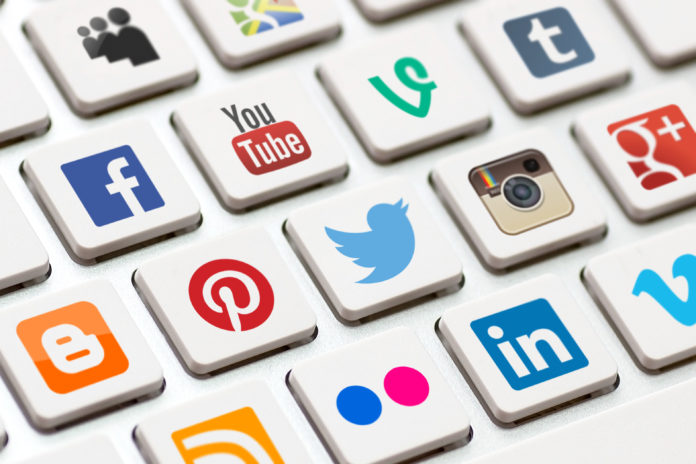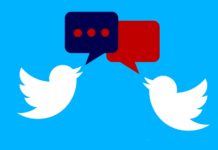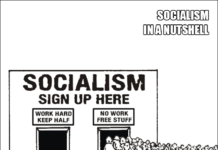On November 2nd, Facebook capitulated on its blockage of a Susan B. Anthony List’s ad in support of Republican Marsha Blackburn. Upon it’s unblocking, Facebook told Susan B. Anthony List (SBA List) that the ad should never have been blocked.
I’m suppressing my tendency to LOL at the mere thought; if Facebook were only errant in this one incident, I’d buy this excuse. According to SBA List’s Twitter account, here’s an accounting of the organization’s Facebook ban battle:
- 10/9 – Micah ad banned in Iowa
- 10/12 – Charlotte ad banned in Arizona:
- 10/12 – We appeal & Charlotte ad allowed to run
- 10/15 – Charlotte ad banned again
- 10/23 – Ad exposing @clairecmc in Missouri banned
- 10/23 – Micah ad banned again
- 10/25 – Ad exposing Josh Welle in #PA17 banned
- 10/25 – We appeal & Micah ad allowed to run
- 10/25 – Facebook bans Charlotte ad a third time
- 10/25 – SBA List appeals again & Charlotte ad restored
- 10/26 – Charlotte ad banned a FOURTH time
- 10/27 – Charlotte ad banned for the FIFTH time
This is one group and during a couple of weeks. I am a dyed-in-the-wool sceptic, but Facebook’s claim of ‘an error’ rings spectacularly hollow. I may just might be willing to believe in my first conspiracy theory; a societal takeover by tech companies.
From an SBA List retweet of American Principles Project; “If the problem is the algorithm then @facebook needs to fix it. It’s obvious that the way it was coded makes it flag #prolife ads, but not pro-abortion ones. Algorithms aren’t biased, but people who write them are.”
In April 2018, Facebook’s Chief Executive Geek Mark Zuckerberg sat in front of a congressional committee, fielding questions on social media bias. Though much of the questioning was a tedious exercise in tech ignorance, the self-same Representative Blackburn asked the Zuck, “So I’d like to ask you, do you subjectively manipulate your algorithms to prioritize or censor speech?”
Telling was his response, “Congresswoman, we don’t think about what we’re doing as censoring speech.”
As did Zuckerberg many times during the hearing, he prattled talking points about rooting out terrorists. It’s an easy go-to; who’s gonna disagree with that?
Even when directly asked if the platform’s much vaunted algorithms targeted conservatives, his answers were waffling at best when suggesting that he does not tell his people to do so. Right. Why would you need to tell your people to censor, they’re already doing it!
As applies to most of the leftist run Silicon Valley tech monopolies, Google is not an unbiased arbiter of content. Being the parent of Youtube, Google also controls the largest platform for video content. A picture paints a thousand words is the old axiom. Youtube traffics in the painting of video pictures. It can be powerful.
Most Youtube content is of no consequence. What happens when you do make a political statement on Youtube? It depends.
Ask Dennis Prager. He the namesake of the Youtube channel, PragerU.
If you’ve ever watched PragerU content, while compelling, is about as dangerous as kitten videos. To be clear, I’m specifically referring to how Youtube defines ‘dangerous’. Youtube states, “Content that intends to incite violence or encourage dangerous or illegal activities that have an inherent risk of serious physical harm or death.”
Yet, Prager content regularly gets banned or hidden (shadow banned) as dangerous. The same has been true of PragerU on Facebook (example via Will Witt), “Our last 9 posts have been completely censored reaching 0 of our 3 million followers.”
PragerU content specifically traffics in ideas. Conservative ideas. The real issue at hand is; these tech companies are pretty much the only game in town. A PragerU-type organization has few other alternatives to trade in conservative ideas.
Tech has a heck of a lot of power over ideas. If I’m getting to the point; that’s a heck of a lot of power over the censoring of ideas.
There’s much power in what you hear or read. It’s how knowledge is transferred. There’s just as much power in ideas you don’t hear.
What if I asked you what the number ‘one’ was? What about if I asked what a ’15’ was? You’d rightly think I was nuts. It’s a number. I mean, really, you have to count stuff no matter the language, right?
That is, unless you’re the Pirahã community of the Amazon. To this community, the only ‘counting’ words they have are; ‘around one’, ‘some’ and ‘many’. That’s it. You and I know that humans are generally born with 10 fingers. To the Pirahã, you have ‘some’ fingers. Exactly how many? The Pirahã don’t get the concept. Their language doesn’t conceptualize counting with specificity. Absent the concept, the number 17 has no meaning.
Therein lies the real power of these tech platforms.
To disabuse the world of evil conservative ideas, Big Tech are the new censors. They’ll tell you they censor all so-called hate speech. As does the left, what constitutes hate speech in Big Tech is malleable. It’s why the left is solely responsible for the idea that words can equal violence.
Conservative ideas are violence and censoring them is merely a public service. Not unlike the Pirahã, if you’re ignorant of the concept of personal liberty, you won’t exercise it.
Our federal government wields enormous power. The federal government can jail you, can seize your assets, can determine they need your land more than you do (eminent domain) and can surveil you with no probable cause. O.k., you actually can’t surveil without cause but if you support Trump, good luck.
It’s scary. It’s a lot of power.
What stands between you and a full government overtake of all citizens rights? It’s two things; the Bill of Right and you. The Bill of Rights curtailed to power of government over your life and eventually came to ensure all citizens the right to vote. Ultimately you have power over the government. You can vote.
Whereas the First Amendment ensures no abridgment of your speech, no such mechanism exists to protect you from Big Tech censorship. There’s no policing of Tech behavior on limiting speech.
It’s a dangerous amount of power.
Long it’s been said that entities like Facebook, Twitter et al are private companies and are only answerable to shareholders. The idea there should be no government intervention in Tech’s policies. Big Tech are companies and are not obligated to support any viewpoint.
It’s a very libertarian viewpoint and one I largely agree with. The more government stays out of everyone’s business, the better we are. The near omnipotence of these tech platforms forces us to consider if such libertarian paradigms remain true.
When considering a hands off approach, a few points to consider:
- There is little to no viable alternative to said platforms.
- The gateway to a world of information access is almost solely through these entities.
- These entities support only one ideological opinion and are not objective in determining what is, or is not, appropriate to publish.
To give a sense of scale, 2017 estimates suggest that there are 3.8 billion internet users. The population of the planet is 7.5 billion people. Facebook as 2 billion active users with 1.32 billion users daily. A quarter of the planet uses Facebook!
With a population of 300+million, the United States is 1/16 the size of Facebook. Consider the amount of power just one platform possesses.
If Facebook doesn’t want you to know something, you probably just won’t know it.
At the turn of the 20th century, Teddy Roosevelt found himself disenchanted with the power of the railroads. Too much power of commerce was in the hands of rail companies. Roosevelt did not dislike big companies if they grew fairly and organically. He disliked companies the abused the very system that allowed them to prosper. Those he felt were rife for regulation.
Are Facebook or Google working fairly within this country? The nation that allowed them the freedom to prosper to the most powerful companies in world history?
In June of 2018, the Supreme Court ruled in favor of Masterpiece Cakeshop Ltd. The case was over the shop’s denial of services for a same sex wedding. The victory was won on narrow grounds. The decision was largely based on differential treatment by Colorado of the cake shop versus other organizations. Colorado law states that you cannot discriminate services based on sexual preference. SCOTUS found that Masterpiece was treated differently and badly by the State of Colorado when the state tried to apply that law.
Is Facebook or Google treating liberal and left ideas versus rightward conservative ideas with the same non-differential criteria?
Though long a dream of the left, Obama’s FCC took a run at implementing Net Neutrality. Said the leftists; without regulations binding the big data carriers to handle traffic from companies big and small, these carriers might favor some traffic that is more financially viable. Net Neutrality was to ensure the future of the same type of future innovation that benefitted the Googles and Facebooks of the world. A mistaken assumption.
Facebook and Google, who supported Net Neutrality; are they themselves ensuring the free exchange of ideas?
The answer to all these questions is clearly; no. Big Tech stands at the gate of information and have taken a stand that only leftward ideas are valuable enough to enjoy the freedom of the American First Amendment.
When assuming the role as adjudicator of ideas, Big Tech has taken on the role of a government. These firms make decisions that affect millions of users. These firms have determined the value of one idea over another.
They can erase from the collective information psyche an idea with the potential to reach a quarter of the planet.
Cynically, I think it’s less the leaders of Big Tech diabolically wringing their evil hands and zapping conservative content. The leaders of tech firms might simply be afraid of their employees. Afraid of the leftist educated tech mob.
Mark Zuckerberg doesn’t censor. It’s not a good business model. His employees do. Often. And under the assumption that nothing will come of the banned content. It’s why these platforms have instituted a ‘no appeal’ policy. An action without consequence. Don’t like it? Tough.
The only chance you have is to raise a big enough stink. If the stink is sufficient, you get the rubber stamped ‘done in error’ and ‘it’s our algorithms’ poppycock.
Zuckerberg didn’t think what his people do with content constitutes censorship. That’s the problem. If you support the filtering of ideas, any mainstream ideas, you’re a censor. That Zuck doesn’t see this distinction is the problem.
Ask Susan B.Anthony List. According to Gallup, 43% of respondents support abortion in all or most circumstances. What of those who think that abortion should be available in rare instances to being totally illegal? 53% support this view. When more people support a position, it’s mainstream. Not extreme. That is, unless you’re programming algorithms to scrape pro-life content.
If Facebook, Google or Twitter won’t bother to right their ships, inasmuch as I hate to think it, the power of their platforms has exceeded their freedom to exercise it regulation free.
I hate such an idea but I hate that they’ve taken the quasi-governmental role of what is or is not acceptable political speech.

























